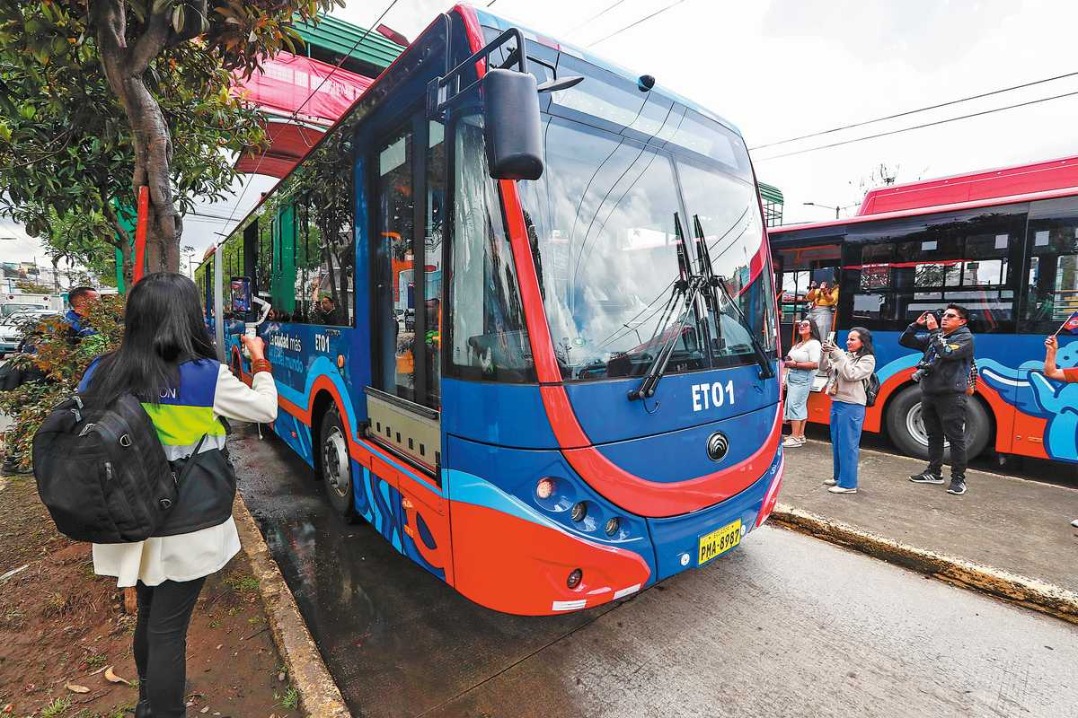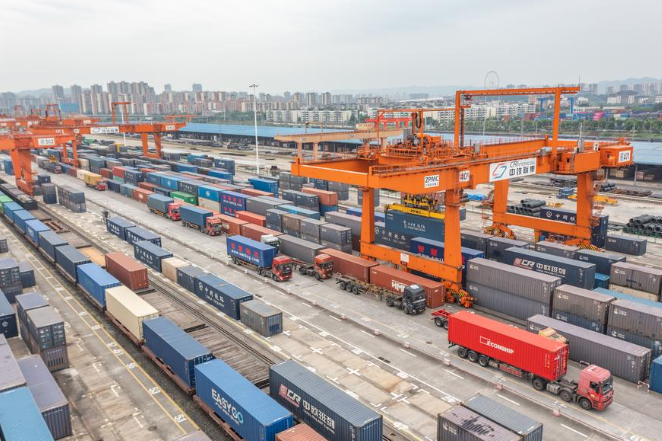FAO, private sector to transform agri-food systems in Near East and Africa


The Food and Agriculture Organization, in partnership with the private sector, has expressed commitment to transform agri-food systems in the Near East and North Africa to make them more productive, resilient and sustainable.
In a virtual dialogue on Monday that brought together the FAO and representatives of the private sector from the two regions, participants discussed the potential of green and inclusive technologies in agriculture.
Qu Dongyu, the director-general of the Food and Agriculture Organization, said the private sector is a key ally in the global fight against food insecurity, malnutrition and rural poverty.
He added that establishment of constructive partnerships and engagement with the private sector is vital to realizing the objectives of sustainable development goals.
"The Near East and North Africa region is currently facing several major challenges directly linked to the way food is produced, processed, distributed and consumed. Together we can deal with the challenges of the region," Qu said.
He said innovation can be fostered towards more sustainable agricultural practices, as well as offering opportunities for decent employment in rural areas through inclusive rural development.
Innovative digital innovations, for instance, can facilitate access to financial services by small and medium enterprises, particularly in less developed areas, and can bring together producers and consumers through shorter and more resilient value chains.
"The private sector is ideally placed to support innovations and improved technologies. Innovation must be a driving force for the public and the private sector, as well as civil society," Qu said.
Khaled Hanafy, the secretary-general of the Union of Arab Chambers, said there is need for an "agricultural revolution" in the region through innovative tools, such as blockchain and artificial intelligence.
"These could help to address challenges related to irrigation, mechanization and the environment, as well as the distribution and stocking of food," he said.
Abdulhakim Elwaer, the FAO's assistant director-general, said even though political commitment remains essential, establishing major alliances and engagement with stakeholders is key to help build consensus towards sustainable development goals.
"Together we can better support rural organizations and empower the most vulnerable communities, including smallholder producers, youth and women, through inclusive pro-poor interventions in rural areas," he said.
According to the FAO regional overview of food security and nutrition, more than 51 million people in the Near East and North Africa are suffering from hunger and the COVID-19 pandemic is expected to worsen the situation.
The "triple burden of malnutrition" consisting of undernutrition, overweight and obesity, as well as micronutrient deficiencies often linked to poor diets continue to increase at an alarming speed in the region, particularly among school-age children and adults, the report published on June 24 stated.
The report findings indicated 22.5 percent of children under 5 years of age were stunted, 9.2 percent wasted and 9.9 percent were overweight. The region also ranked second for adult obesity in the world in 2019, with 27 percent of the adult population being obese.
"While conflicts and crises are the main drivers behind the deteriorating hunger situation, the region's agri-food systems are failing to deliver affordable, diverse, safe and nutritious food to all," Qu said.
He said rising demand to feed a fast-growing population in the region, coupled with environmental pressures, have translated to a rapid degradation of the region's natural resources.
The Near East includes the lands around the eastern shores of the Mediterranean Sea, including northeastern Africa, southwestern Asia, and, occasionally, the Balkan Peninsula.
































